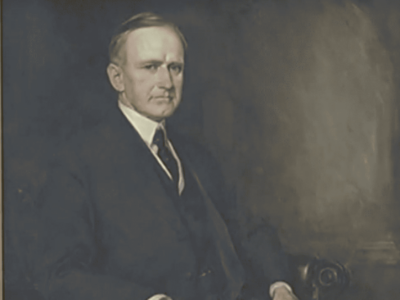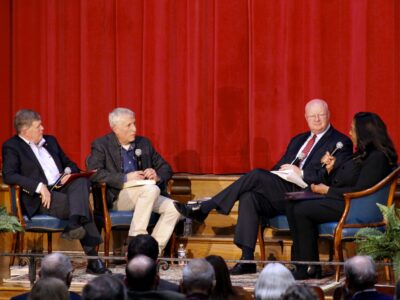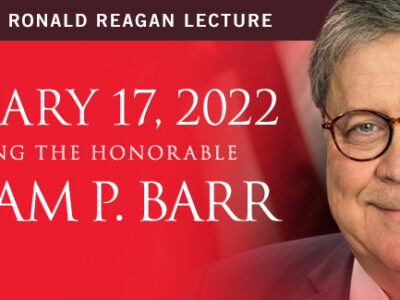A tyrannical regime is brutally treating its subjects. Suffering abounds and basic freedoms are denied. Congress, the press, the religious community, and the American public denounce the cruelty and butchery this government has practiced for decades and debate the best course of action to end it. A Methodist president in his fifties agonizes for months about what to do. Finally, after years of diplomacy fail to convince this regime to change its conduct, this Republican president sends troops to liberate these exploited people.
This sounds like George W. Bush’s campaign to depose Saddam Hussein and free the Iraqi people. But, it also accurately describes William McKinley’s crusade to force Spain to grant Cuba independence in 1898. Spain had ruled Cuba with an iron hand for more than a century before an insurrection broke out in 1895. Cuba’s economy collapsed, and within a two-year period one-eighth of the island’s population died of disease and starvation. Convinced that further diplomatic and moral pressure would not end Spanish oppression, the United States declared war in April 1898.
McKinley and Bush share other similarities. Elected one hundred years apart, these two Methodist presidents were both governors of populous states, Ohio and Texas, immediately before being elected the nation’s chief executive. Men of deep and devout faith, both often declared their belief that God providentially directs history and chose the United States to be a beacon of democracy, justice, and liberty and to export these values to other nations.
Both are known for reading the Bible and praying daily and attending church faithfully. Both publicly testified to their personal relationship with Jesus Christ and frequently used religious rhetoric in political speeches. Both asserted that God appointed them to be president at a particular time in history. Critics have complained that both made decisions based on their understanding of what God was telling them to do. While the term was not coined until the 1990s, both have been advocates of “compassionate conservatism.”
Granted, there are also major differences between the two presidents. McKinley’s father owned a foundry in Niles, Ohio and struggled to feed and clothe his family of nine children. McKinley attended only one semester of college, fought in the Civil War, rising to the rank of major, and served six terms in the House of Representatives. The son of a diplomat and future vice president and president, Bush grew up in an affluent home in Texas. He graduated from Yale, never fought in a war or served in Congress, and was an oil executive and a baseball team owner before entering politics.
Converted as a twelve-year old, McKinley joined the Methodist church at age sixteen. Thereafter, strengthened by the crucible of the Civil War, his faith was a very significant part of his life. Strictly adhering to his Methodist upbringing, he rarely drank or swore. After his death in September 1901 at the hands of an assassin, McKinley was widely extolled as an upright and compassionate man.
Bush grew up under Presbyterian and Episcopal influences and admittedly had a nominal faith. After marrying Laura in 1977, he joined the Methodist church. His battles with the bottle are public knowledge. Deeply impacted by a nondenominational Bible study group he joined in 1985, Bush became a “born again” Christian and gave up drinking. More than did McKinley, Bush has pushed a political agenda inspired by his faith.
There are also major differences between America’s campaigns to free Cuba and Iraq. Cuba was ruled by a foreign power, Iraq by a native son. The decision to invade Iraq had as much or more to do with eliminating weapons of mass destruction and preventing aid to terrorists as it did with liberating Iraqis. Almost all segments of the religious community supported McKinley’s declaration of war against Spain in 1898. By contrast, while most evangelical Protestants supported the war against Iraq, most Catholic and Jewish spokespersons and leaders of mainline Protestant denominations, including Methodists, did not.
Both wars ended quickly. The Spanish-American War lasted three months. “Operation Iraqi Freedom” took only one. Although promising not to annex Cuba, the United States governed the island for four years. The occupational government established a free public school system, reformed the judiciary, improved municipal government, constructed roads and hospitals, and helped stop the spread of tropical diseases. However, this military government used arbitrary methods, displayed little sensitivity for Cuban cultural mores and practices, and strengthened American political and economic control of the island.
The United States has repeatedly affirmed that it will quickly turn the governing of Iraq over to its own citizens, and today’s American political leaders seem to have more respect for cultural differences. Nevertheless many Iraqis fear that the United States will stay too long and exert too much control over their country. Critics in other countries have accused America of invading Iraq for economic and military reasons. Many scholars blame American actions in waging war against Spain in 1898, ruling Cuba for four years, and making the Philippines a dependency for setting our nation on an imperialist course in the twentieth century.
What impact our overthrow of Hussein’s regime will have remains to be seen. Hopefully, Iraq can become what Cuba did not: a model for democracy, social stability, and economic prosperity in its region of the world. Time will tell.




